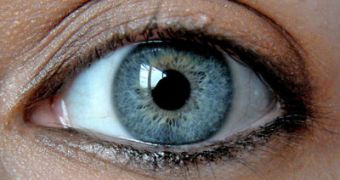Scientists in the United States are now busy trying to determine whether or not two newly developed eye tests could one day make it possible for doctors to diagnose Alzheimer's in patients who still have about two decades until symptoms for this condition begin to manifest.
Information shared with the public says that, because they are non-invasive, these two tests, i.e. the Retinal Amyloid Index by NeuroVision and the Sapphire II by Cognoptix, would be fairly easy to carry out.
Both medical procedures boil down to pinning down amyloid plaque deposits inside a person's retina, researchers explain.
Apparently, such plaque deposits form years before memory loss sets in, and are widely recognized as a marker for Alzheimer's.
More precisely, the brains of people suffering from said medical condition display numerous such plaques, which sit in the spaces between nerve cells.
Since a person's retina and a person's brain form from the very same type of tissue while the individual is still in the womb, scientists expect that the presence of amyloid plaques in an individual's retina can serve as an indicator that the brain is not safe from harm either.
Interestingly enough, this is not the first time when researchers look at a person's eyes hoping to get information concerning how likely that individual is to develop Alzheimer's.
“Ocular exams through the years have attempted to diagnose Alzheimer’s at an early age. We have looked at optic nerve cupping, pupillary response to tropicamide dilation and ocular muscle movement,” Dr. Michael Tolentino explains, as cited by Daily Mail.
However, “While all have been investigated, all have failed to withstand the test of time in terms of sensitivity and specificity.”
The researchers working on this project explain that, should these tests prove effective, Alzheimer's patients could benefit from early treatment and would therefore stand a chance at displaying far less severe symptoms than people presently affected by this condition do.
As Professor Keith Black puts it, “The key for having an effective treatment for AD is early detection. You want to prevent those brain cells from being killed or dying in the first place.”

 14 DAY TRIAL //
14 DAY TRIAL //